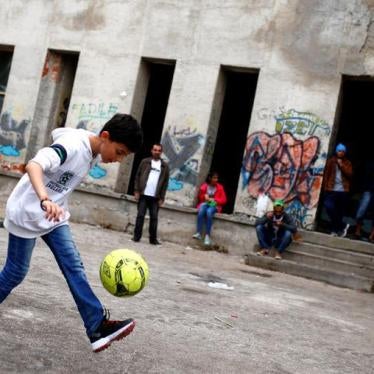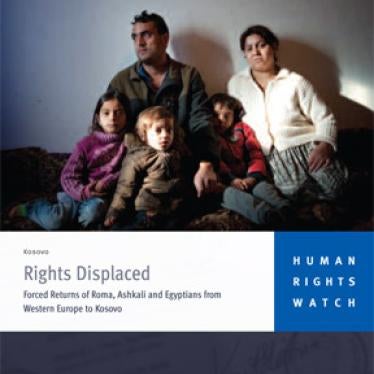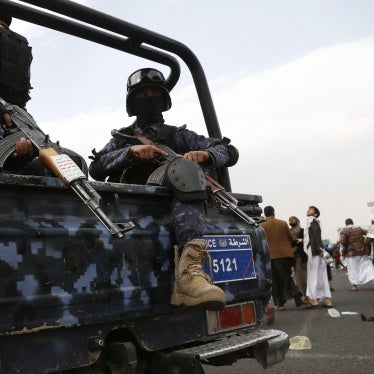This fall, the European Commission (EC) and the US Agency for International Development (USAID) began closing down lead-contaminated camps in Kosovo, where displaced Roma were living in abysmal health conditions for a decade. Human Rights Watch documented more than a decade of failure by the United Nations and others to provide adequate housing and medical treatment for the Roma in these camps, and pressed the EC and USAID to relocate the camps’ inhabitants to a safe environment with access to medical treatment.
In Pristina, Brussels, New York, and Washington, we briefed Kosovo authorities, international donors, and governments on our findings and recommendations and pressed for urgent action to remedy the problem. We conducted substantial media outreach, including the production and distribution of a photo slideshow, which resulted in prominent press coverage in the Guardian, the Observer, and on Deutsche Welle and the newswires.
We briefed organizations such as the Open Society Institute and the European Roma Rights Centre, which conducted further advocacy on the issue. Finally, we briefed the staff of the UN Special Rapporteur on the Situation of Internally Displaced Persons on the situation in the Mitrovica Roma camps prior to his team’s visit to Kosovo. His subsequent report featured the Roma’s plight prominently and supported our key recommendations: the camps’ immediate closure and the provision of urgent medical treatment.
The EC and USAID are now closing down the Roma camps in Mitrovica and constructing alternative housing in the so-called Roma Mahalla, the neighborhood in Kosovo from which Roma families were expelled during the war. The project also reflects our key recommendations: regular health monitoring for the entire resettled population, with particular attention to the health of children for whom lead exposure can cause developmental problems; health assistance, including food aid; income generation schemes; and fair access to public services.







